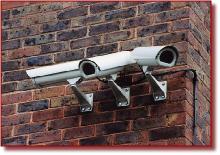![]()
![]()
![]()
![]()
![]()
![]()
![]()
![]()
![]()
![]()
![]()
![]()
![]()
![]()
![]()
![]()
![]()
![]()
![]()
![]()
![]()
![]()
![]()
![]()
![]()
![]()
![]()
![]()
![]()
![]()
![]()
![]()
![]()
![]()
![]()
![]()
![]()
![]()
![]()
![]()
IMPORTANT: No material may be reproduced, copied or redistributed from this site, without the express written consent of doktorjon.co.uk
All the detailed information on this site is provided in good faith; and as such, Doktor Jon does not accept responsibility for any consequential loss, injury or disadvantage resulting from any individual or organisation acting on the details contained herein.
© doktorjon.com 2004 - 2010
![]()

Doktor Jon's Top Ten Tips for using CCTV in and around the Home
So far, we've had a quick look through some of the main points to consider when planning to install CCTV in the Home.
Here is a summary of just a few of the more important things to remember:-
Please Note - Doktor Jon is currently upgrading his site, so you may see some layout changes on various pages, whilst the work is in progress.
Hopefully, the complete re-design and improvements, should be completed by early 2010.
1) Make sure that all areas to be monitored are subject to adequate lighting at night. Low level (intensity) visible light is generally preferable to Infra Red, wherever possible.
2) If you need to watch a front door, either use an ultra wide angle lens camera next to it, or alternatively, locate the unit (fitted with a telephoto lens) well away from the door, and monitor it discreetly from a distance. For a flat or apartment, you could consider using an ultra wide 'spyhole' type camera that actually looks through the door.
3) If the property is at a heightened risk of burglary, fit covert indoor cameras in the main passageways, and make sure that the recording equipment is very well hidden! Using cableless microwave (radio) links can help conceal the equipments location (but remember there is always a risk that the signal can be picked up by neighbouring properties).
4) With a remote or rural house, try and avoid fitting visible CCTV cameras on the outside, as this will tend to draw unnecessary attention to the property; if the property is very isolated, criminals will often vandalise visible cameras before getting up to mischief.
5) Make a point of fixing cameras, so that they do not look towards the sun. Also make sure that any housing window is kept clean to maintain picture quality (try not to mount the cameras too high, as apart from making them less efficient, it also raises safety concerns when trying to access).
6) If you do have to fit an visible dummy as a deterrent, try and locate it within the view of another covert camera. If criminals target the dummy, they will hopefully be caught by the other.
7) Where an isolated property may be subject to power black outs or the mains supply to the property can be easily attacked, try and use 12v DC powered equipment, and maintain a good battery back up supply.
8) Do not look at CCTV as a magic protective wand. When designing a system for the Home, always expect the worst, then you can plan the system design accordingly.
9) If possible, try and avoid using remote control cameras; it's tempting to fit cameras that are capable of covering wide areas, but in practice, they only watch a small percentage at any one time, and as is often the case, it's usually the wrong place at the wrong time. PTZ cameras should only ever be considered as the preferred option when there is someone on site (or remote) to watch and control them, at all times.
10) Wherever possible, always aim to use the highest quality equipment (preferably colour), and check the record quality at regular intervals. If you buy cheap domestic grade equipment, the pictures may well tell their own story, and you might just miss out on a happy ending.
CCTV in the Home - Frequently Asked Questions
If there are any further points or suggestions about CCTV which you'd like
Doktor Jon to address in this section,
please e-mail your request to:- helpdesk[at]doktorjon.co.uk






